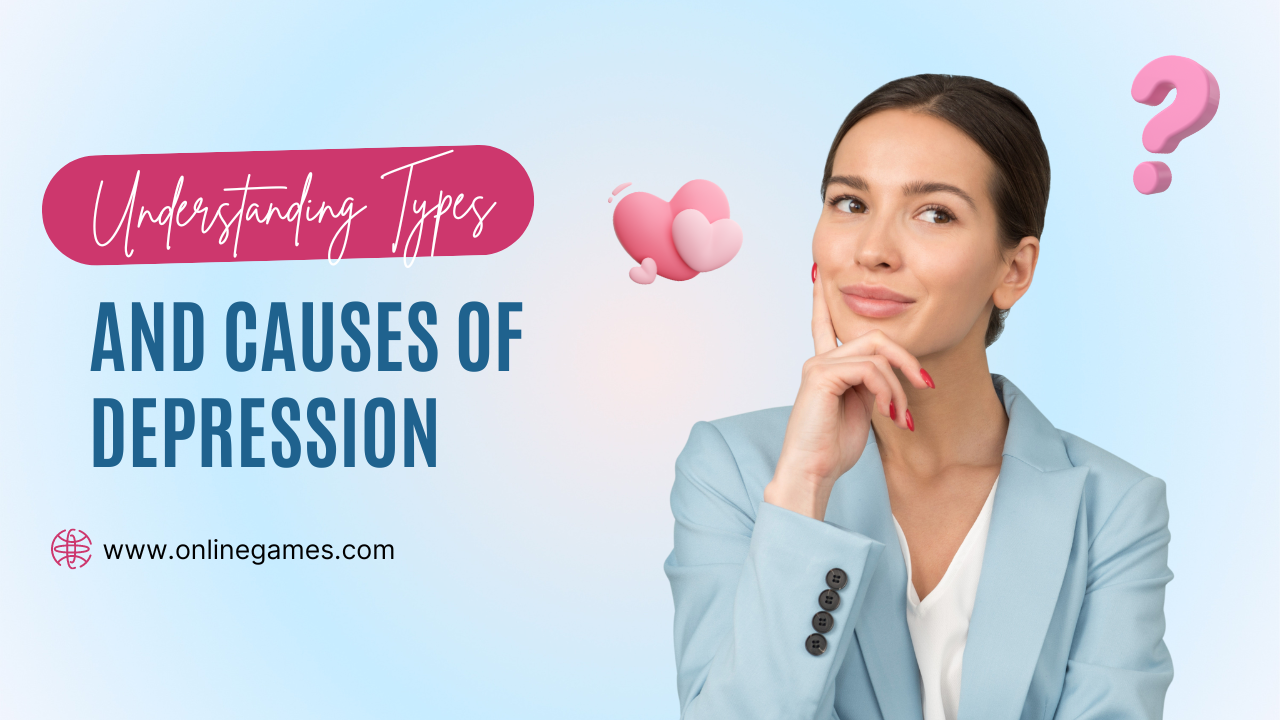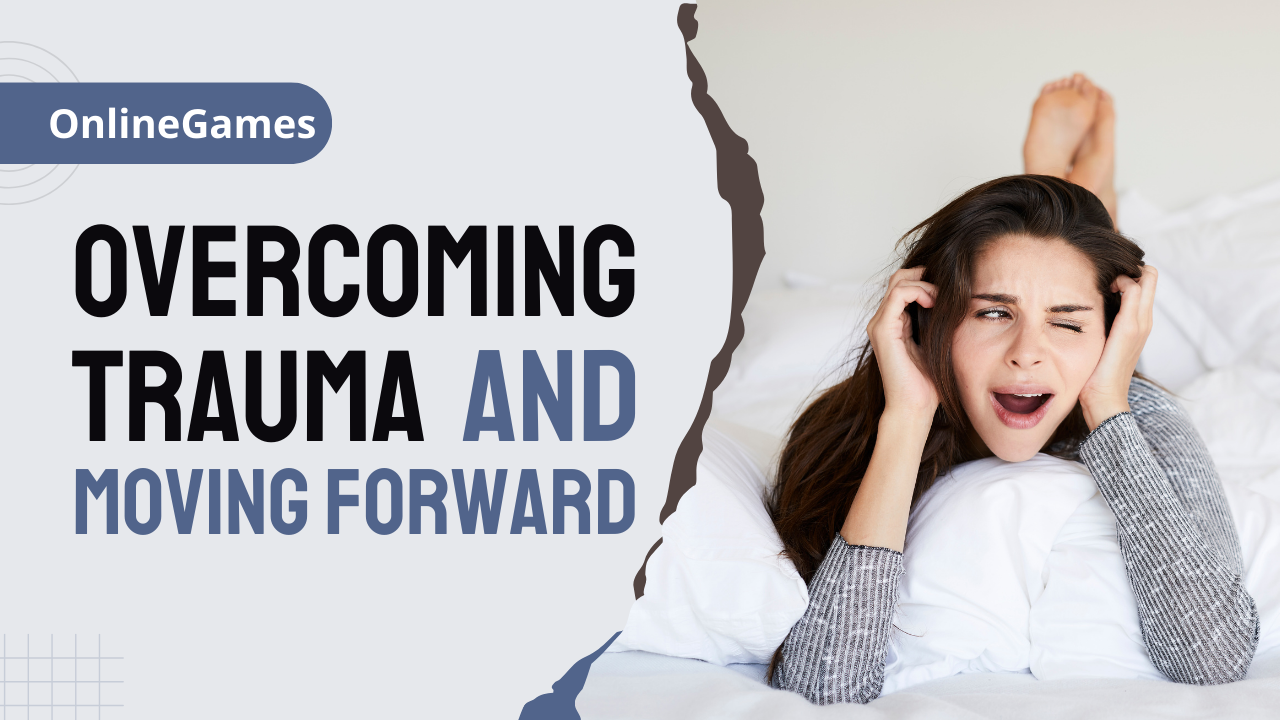Depression is a complex and multifaceted mental health disorder that affects millions of individuals worldwide. Characterized by persistent feelings of sadness, hopelessness, and a lack of interest in daily activities, depression can significantly impair an individual’s quality of life. Understanding the various types of depression and their underlying causes is crucial for effective diagnosis, treatment, and management. This comprehensive guide delves into the different forms of depression, exploring their unique characteristics and the factors that contribute to their development.
Types of Depression
1. Major Depressive Disorder (MDD)
Major Depressive Disorder (MDD), commonly referred to as clinical depression, is characterized by a persistently low mood and a loss of interest in most activities. To be diagnosed with MDD, symptoms must last for at least two weeks and significantly interfere with daily functioning.
Key Symptoms:
- Persistent sadness or emptiness
- Loss of interest in activities once enjoyed
- Changes in appetite and weight
- Sleep disturbances (insomnia or oversleeping)
- Fatigue or loss of energy
- Difficulty concentrating
- Feelings of worthlessness or guilt
- Recurrent thoughts of death or suicide
2. Persistent Depressive Disorder (PDD)
Persistent Depressive Disorder (PDD), also known as dysthymia, is a chronic form of depression that lasts for at least two years. Although the symptoms may be less severe than those of MDD, they are long-lasting and can interfere with daily life and relationships.
Key Symptoms:
- Depressed mood most of the day, for more days than not
- Poor appetite or overeating
- Insomnia or hypersomnia
- Low energy or fatigue
- Low self-esteem
- Poor concentration or difficulty making decisions
- Feelings of hopelessness
3. Bipolar Disorder
Bipolar Disorder involves mood swings that range from depressive episodes to manic or hypomanic episodes. During depressive episodes, individuals experience symptoms similar to those of MDD, while manic episodes are characterized by elevated mood, increased energy, and impulsive behaviour.
Key Symptoms of Depressive Episodes:
- Low mood and energy
- Loss of interest in activities
- Sleep disturbances
- Feelings of worthlessness
Key Symptoms of Manic Episodes:
- Elevated or irritable mood
- Increased activity or energy
- Decreased need for sleep
- Grandiosity or inflated self-esteem
- Racing thoughts or flight of ideas
- Impulsive or reckless behaviour
4. Seasonal Affective Disorder (SAD)
Seasonal Affective Disorder (SAD) is a type of depression that occurs at specific times of the year, most commonly during the fall and winter months when there is less natural sunlight. SAD is thought to be related to changes in light exposure that affect circadian rhythms and neurotransmitter levels.
Key Symptoms:
- Low energy and fatigue
- Increased sleepiness and difficulty waking up
- Changes in appetite, particularly cravings for carbohydrates
- Weight gain
- Feelings of sadness or hopelessness
- Withdrawal from social activities
5. Postpartum Depression (PPD)
Postpartum Depression (PPD) affects women after childbirth, involving intense feelings of sadness, anxiety, and exhaustion that can interfere with a mother’s ability to care for her baby and herself. PPD can occur anytime within the first year after delivery.
Key Symptoms:
- Persistent sadness or mood swings
- Severe fatigue or low energy
- Changes in sleep and appetite
- Difficulty bonding with the baby
- Feelings of hopelessness or worthlessness
- Anxiety and panic attacks
- Thoughts of harming oneself or the baby
6. Premenstrual Dysphoric Disorder (PMDD)
Premenstrual Dysphoric Disorder (PMDD) is a severe form of premenstrual syndrome (PMS) that causes significant mood disturbances and physical symptoms in the luteal phase of the menstrual cycle. PMDD symptoms are more intense than PMS and can disrupt daily life and relationships.
Key Symptoms:
- Severe mood swings and irritability
- Depressed mood and feelings of hopelessness
- Anxiety and tension
- Physical symptoms such as bloating and breast tenderness
- Difficulty concentrating
- Changes in sleep and appetite
7. Atypical Depression
Atypical Depression is characterized by a specific pattern of symptoms that include mood reactivity (mood improves in response to positive events), significant weight gain or increased appetite, excessive sleep, and a heavy feeling in the limbs.
Key Symptoms:
- Mood reactivity
- Increased appetite or significant weight gain
- Excessive sleep
- Heavy, leaden feelings in arms or legs
- Sensitivity to rejection
Causes of Depression
1. Biological Factors
Genetic Predisposition: Depression can run in families, suggesting a genetic component. Individuals with a family history of depression are at higher risk of developing the disorder themselves.
Neurotransmitter Imbalances: Imbalances in brain chemicals such as serotonin, dopamine, and norepinephrine are associated with depression. These neurotransmitters play key roles in mood regulation and emotional response.
Hormonal Changes: Hormonal fluctuations can contribute to depression. Conditions such as thyroid disorders, menopause, and postpartum hormonal changes can trigger or exacerbate depressive symptoms.
2. Psychological Factors
Personality Traits: Certain personality traits, such as low self-esteem, pessimism, and high levels of stress, can increase susceptibility to depression. Individuals with these traits may find it more challenging to cope with life’s difficulties.
Trauma and Stress: Experiencing trauma, such as physical or emotional abuse, or significant stress, such as financial difficulties or the loss of a loved one, can lead to the development of depression. These experiences can affect an individual’s mental and emotional resilience.
3. Social and Environmental Factors
Social Isolation: A lack of social support and feelings of isolation can contribute to depression. Strong social connections are important for emotional well-being and can provide a buffer against stress.
Chronic Illness and Disability: Living with a chronic illness or disability can increase the risk of depression due to the associated physical limitations, pain, and the impact on daily functioning.
Substance Abuse: Substance abuse, including alcohol and drugs, can contribute to the development of depression. These substances can alter brain chemistry and exacerbate mood disorders.
4. Life Events
Major Life Changes: Significant life changes, such as divorce, job loss, or relocation, can trigger depressive episodes. These changes can lead to feelings of uncertainty, loss, and increased stress.
Loss and Grief: The death of a loved one or the end of a significant relationship can lead to profound feelings of grief and sadness, potentially triggering depression.
5. Biological and Environmental Interactions
Epigenetics: Epigenetic changes can occur due to interactions between genetic predisposition and environmental factors. These changes can influence gene expression and contribute to the development of depression.
Early Childhood Adversity: Adverse experiences in early childhood, such as neglect or abuse, can have long-lasting effects on brain development and increase the risk of depression in later life.
Diagnosis and Treatment of Depression
Diagnosis of Depression
Clinical Evaluation: Diagnosis of depression typically involves a comprehensive clinical evaluation by a healthcare provider, including a detailed medical history, symptom assessment, and possibly a physical examination to rule out other medical conditions.
Diagnostic Criteria: Mental health professionals use standardized criteria, such as those outlined in the Diagnostic and Statistical Manual of Mental Disorders (DSM-5), to diagnose depression. These criteria include the presence of specific symptoms and their impact on daily functioning.
Treatment Options
Psychotherapy: Psychotherapy, or talk therapy, is a common treatment for depression. Cognitive-behavioural therapy (CBT), interpersonal therapy (IPT), and psychodynamic therapy are effective approaches that help individuals identify and change negative thought patterns and behaviours.
Medication: Antidepressant medications can help manage symptoms of depression by balancing brain chemicals. Commonly prescribed antidepressants include selective serotonin reuptake inhibitors (SSRIs), serotonin-norepinephrine reuptake inhibitors (SNRIs), and tricyclic antidepressants (TCAs).
Lifestyle Changes: Incorporating healthy lifestyle changes, such as regular exercise, a balanced diet, sufficient sleep, and stress reduction techniques, can significantly improve symptoms of depression and overall mental health.
Alternative Therapies: Complementary treatments, such as mindfulness meditation, acupuncture, and yoga, can provide additional support and help reduce symptoms of depression. These therapies can be particularly beneficial when used alongside traditional treatments.
Understanding and Managing Depression
Understanding the various types of depression and their underlying causes is crucial for effective diagnosis and treatment. Depression is a complex condition influenced by a combination of biological, psychological, social, and environmental factors. By recognizing the symptoms and contributing factors, individuals can seek appropriate help and adopt strategies to manage and overcome depression. Treatment approaches, including psychotherapy, medication, lifestyle changes, and alternative therapies, offer a comprehensive framework for addressing depression and improving overall mental well-being.










